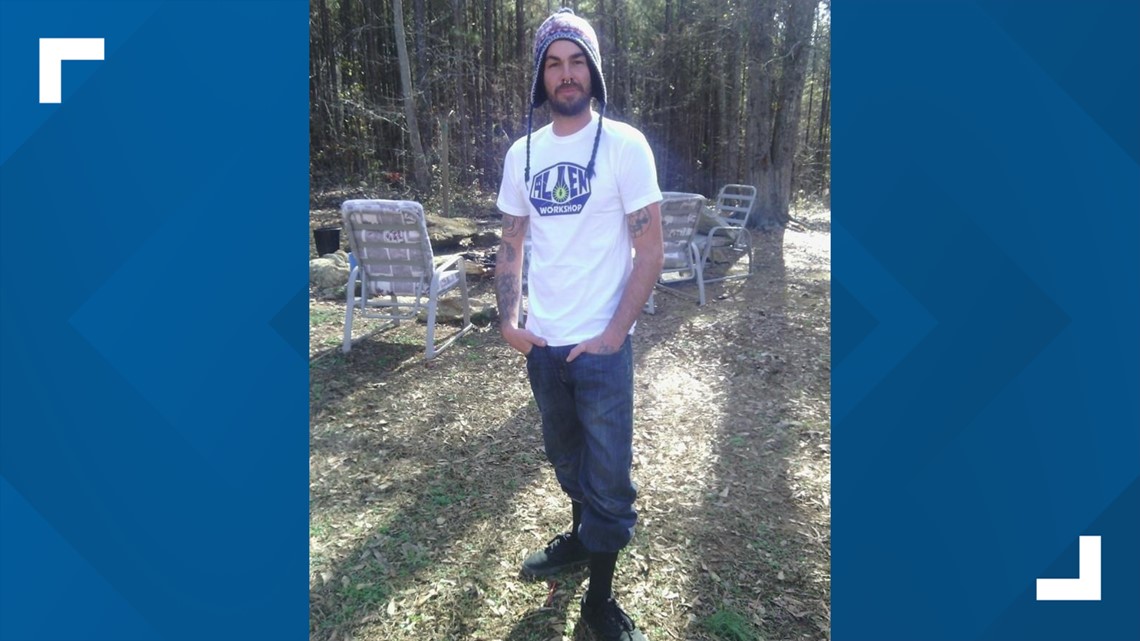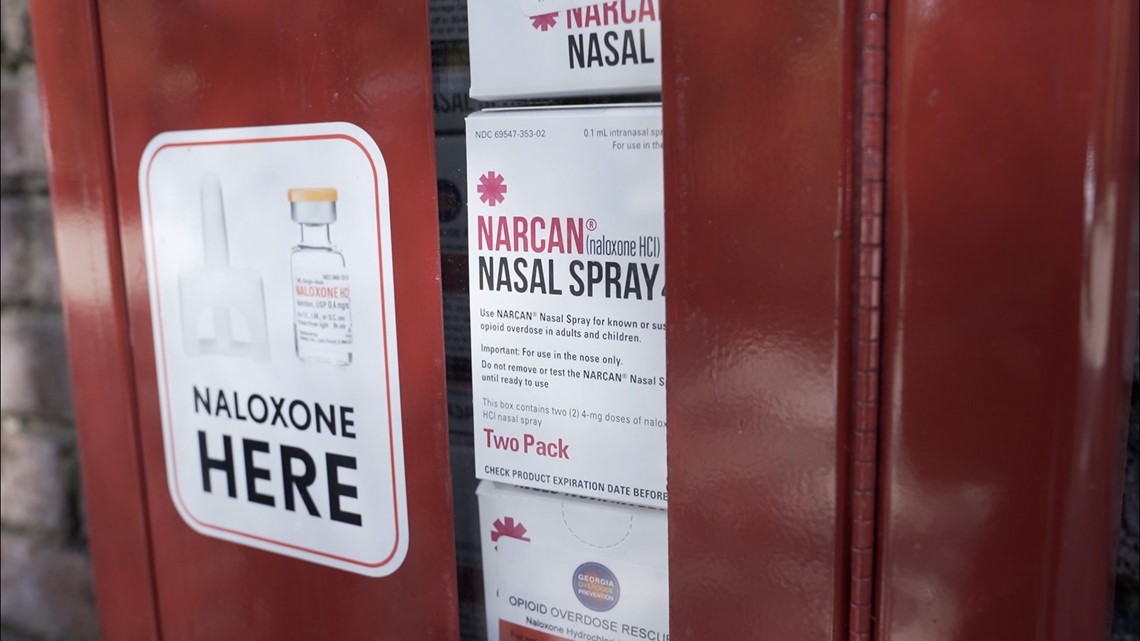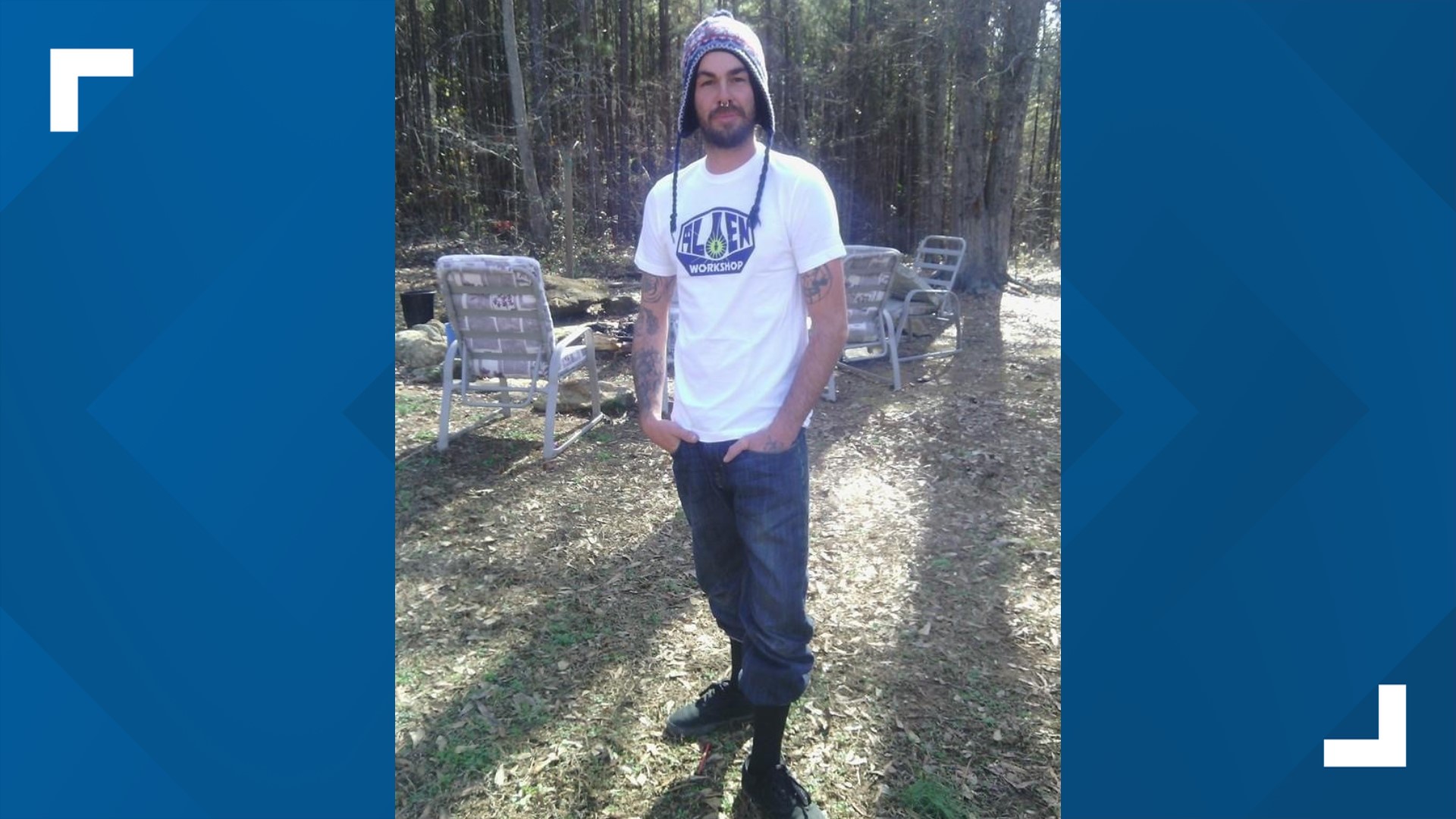NEWTON COUNTY, Ga. — The medical amnesty law to help save the lives of people experiencing a drug overdose has been around for nine years, but people are still dying. After a Newton County family reached out to 11Alive Investigates, upset no one called the night their loved one died, we wanted to know how well the law is working.
Mike Robinson was 39 years old when the autopsy report said he died of an accidental drug overdose. The medical examiner found fentanyl, oxycodone, and meth in his system.
His aunt, Jean Corbisiero, said his struggle with drugs started in high school. First, it was meth, then opioids.
“I think it just started out as, let me take a couple, couple of pills,” she recalls.
More than the drugs, Corbisiero remembers the clever and kind man, a loving father who always beamed with so much potential.
“You had meth that was horrible, you know. Now you have fentanyl, which makes heroin look like a kid's fight,” she said, reflecting on Robinson’s return to drug use and the nationwide epidemic that killed 2,619 people in Georgia last year.


Just hours before Robinson died, he called his friend Jon for a ride. Jon would later be heard on a deputy’s body camera describing what happened next.
He said that he knew where Robinson wanted to go but not necessarily why. On the trip home, it became clear Robinson had consumed drugs. He appeared to fall into a deep sleep in the passenger seat, forcing Jon to have to carry him inside and lay him on the bed.
Several hours later, Jon told the deputies he returned to pick Robinson up for work. But he says Robinson was still in the same spot as where he had left him. He had died overnight.
“We know Mike took the drugs. Mike took the drugs. That’s a fact. Nobody forced him to,” said his aunt.
But Mike Robinson’s family believes he would still be alive if his friend had taken him to the hospital that night or called 911 instead of carrying him into his room.
“You have to have accountability,” his aunt added.
While Jon didn’t call the police, his girlfriend said he did try to call her, but she was asleep. It’s unclear if Jon knew the call and had gone to voicemail when he begged for Mike to wake up.
In the recording, you hear what sounds like wind, perhaps from the windows rolled down or road noise. Then, about 20 seconds into the call, you hear a voice call out Robinson’s name in an effort to wake him up. Then the man says, “You f**ing OD’d on me.”
To Robinson’s family, the call proves Jon knew what was going on and intentionally failed to render aid.
When someone dies of an unintentional drug overdose, a report is created to better understand why. According to the CDC’s review of those SUDORS reports in Georgia, in 45% of the deaths, there was potentially someone there who could have called for help but didn’t. It’s an improvement from 2020 when 60% of the people who died potentially had a bystander who could have intervened.
When 11Alive asked why Newton County made the decision not to charge Jon with failure to render aid, Investigator Joshua Hicks responded with a written statement. He said in part, “NCSO investigators did follow up with DA’s Office for additional guidance on charges in reference to failure to render aid. The DA’s Office told the investigators that there is no law that mandates those to render aid in overdose situations in the State of Georgia at this time.”
The only requirement to render aid in Georgia is when a person is involved in a traffic accident.
When lawmakers passed the medical amnesty law in 2014, families hoped it would save lives by removing some of the fear or stigma around getting help for someone who had overdosed on alcohol or drugs.
The law provides immunity for those experiencing a drug overdose in need of medical care or those who seek medical care in good faith for a person experiencing an overdose as long as they stay until help arrives.
According to the Centers for Disease Control and Prevention, last year, 911 calls in Georgia helped rush 20,573 people experiencing a drug overdose to the hospital.
No one tracks how many times the amnesty law is used, but this year, 11Alive found 42 overdose-related calls in Newton County, where Robinson died. True to the law, police never arrested the caller.
“We would rather save the life than make an arrest,” explained Caitlin Jett, a spokesperson for the Newton County Sheriff’s office.
Two people who experienced a drug overdose were arrested, but not because of the event that called the police to the scene. One was arrested for an outstanding warrant in another county. The other was arrested for DUI because he tried to drive away before help could arrive.
"Don’t run. Call 911." - That’s the phrase Andy Gish shares everywhere she goes.
Gish is a registered nurse and the director of Georgia Overdose Prevention. She fought for the law in 2014. Now she’s helping to install outdoor boxes to get Naloxone, better known as Narcan, to anyone who needs it.
“So that people can come and get it when they need to. They don't have to worry about being stigmatized,” said Gish.


Georgia’s medical amnesty law also protects anyone who uses Naloxone to try to reverse the effects of an opioid overdose. In Newton County, 19 of the overdose-related 911 calls this year involved the use of Naloxone.
The calls feature people who were unconscious, had stopped breathing, and their lips turning blue, seemingly coming back to life after the drug was administered.
One woman working at a retail store was taking out the trash when she noticed a man passed out in his truck. She was in recovery herself and saw the Narcan in the man’s vehicle. She gave him the shot and called 911. As the woman talked with dispatch, you could hear the man regain consciousness as she tried to explain to him what happened.
“Dude, you ok? I Narcaned you, dude. I’m just getting you some help,” you hear the caller say.
So far, Georgia Overdose Prevention and Georgia Harm Reduction have received more than 9,500 voluntary reports of overdose reversals since the law was passed.
It’s why Gish wants to get Naloxone into as many hands as possible.
You can buy Naloxone over the counter without a prescription. There is also a map where people can find a distribution box or vending machine that’s accessible 24 hours a day. Volunteers work to keep it stocked for those who don’t have the money or would otherwise not access it on their own.
The first box went up in October, so it’s a new effort Gish hopes will spread to cover the state.
“If you look at the map, North Georgia, Atlanta has a lot of spots. If you look at South and Middle Georgia, we have a lot of needs there,” Gish said.
He remembers talking with a man who came into the emergency room before the law passed. Explaining why he was hesitant to call for help, the man said, "My friend and I used heroin together, and he overdosed, so I called for help, and he went to the hospital, and I went to jail… so we made a pact [in the future] to not call for help.”
Gish understands families are frustrated when no one makes the call but worries changing the law would do more harm.
“Maybe a consenting adult used a drug, someone else comes across them and they're full of fear. They maybe don't know what to do at all. Maybe they don't even know about the law,” she said. “I mean, it may not be that you're afraid of the police, but you're afraid of your family finding out.”
What Gish and Robinson’s family do agree on is that they don’t want people to fear calling 911.

